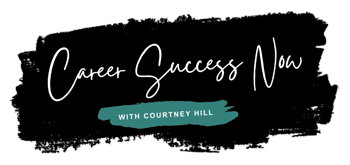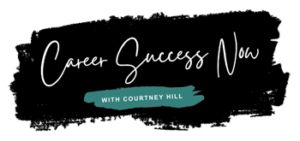I. Introduction
A. Definition of Career Coaching
Career coaching is a professional service that helps individuals navigate their career paths. It involves a collaborative relationship between a coach and a client, where the coach provides guidance, support, and expertise to help the client achieve their career goals. Career coaching can cover a wide range of areas, including career transitions, job searches, leadership development, and performance improvement.
B. Importance of Career Coaching in Today’s Job Market
In today’s rapidly changing job market, career coaching has become increasingly important. With technological advancements, globalization, and evolving industries, many professionals find themselves needing to adapt to new roles or change career paths. Career coaching offers personalized support to help individuals stay competitive, overcome challenges, and achieve long-term career success. Whether you are looking to advance in your current job, transition to a new field, or improve your professional skills, career coaching can provide the direction and tools you need.
C. Purpose of the Article
The purpose of this article is to provide a comprehensive overview of career coaching services. We will explore what career coaching is, the different types of coaching available, and the benefits it can offer. Additionally, we will discuss when it might be the right time to seek a career coach, how to choose the right one, and what the coaching process typically involves. We will also share real-life success stories, examine the costs associated with career coaching, and address common misconceptions.
D. Overview of What Will Be Covered
This article will cover the following topics:
- Understanding Career Coaching
- Benefits of Career Coaching
- When to Seek Career Coaching Services
- How to Choose the Right Career Coach
- The Career Coaching Process
- Real-Life Success Stories
- Cost of Career Coaching Services
- Common Misconceptions About Career Coaching
- Conclusion
- Additional Resources
By the end of this article, you will have a thorough understanding of career coaching and how it can help you achieve your professional goals.
II. Understanding Career Coaching
A. What is Career Coaching?
Career coaching is a process designed to help individuals clarify their career goals, develop strategies to achieve them, and enhance their overall professional development. A career coach provides personalized guidance and support, helping clients navigate challenges and make informed decisions about their careers. This can include identifying strengths and weaknesses, setting achievable goals, improving job search techniques, and developing essential skills.
B. Difference Between Career Coaching and Mentoring
While both career coaching and mentoring aim to support professional development, there are key differences between the two. Mentoring typically involves a more experienced individual providing advice and guidance based on their own experiences. Mentors often have a personal relationship with the mentee and offer long-term support.
In contrast, career coaching is a structured and professional relationship focused on the client’s specific career goals. Coaches use various tools and techniques to help clients develop actionable plans and achieve measurable results. Coaching is typically more goal-oriented and time-limited compared to mentoring.
C. Types of Career Coaching Services
There are several types of career coaching services, each catering to different needs and career stages. Understanding these types can help you choose the right coaching service for your situation.
1. Executive Coaching
Executive coaching is designed for senior leaders and executives. It focuses on enhancing leadership skills, strategic thinking, and decision-making abilities. Executive coaches help clients navigate complex organizational challenges, improve their leadership effectiveness, and achieve their professional objectives.
2. Career Transition Coaching
Career transition coaching is for individuals looking to change careers or industries. This type of coaching helps clients identify transferable skills, explore new career opportunities, and develop strategies for a successful transition. Coaches assist with resume writing, interview preparation, and networking to help clients secure their desired roles.
3. Leadership Coaching
Leadership coaching aims to develop and enhance leadership capabilities at any career stage. It focuses on improving communication, team management, conflict resolution, and other essential leadership skills. Leadership coaches work with clients to build their confidence and effectiveness as leaders.
4. Job Search Coaching
Job search coaching provides support and strategies for individuals actively seeking new employment. Coaches help clients with resume and cover letter writing, job search techniques, interview preparation, and salary negotiation. The goal is to streamline the job search process and increase the chances of landing a desirable position.
5. Performance Coaching
Performance coaching is geared towards improving an individual’s performance in their current role. This type of coaching focuses on setting and achieving performance goals, enhancing productivity, and developing key skills. Performance coaches help clients overcome obstacles, improve their work habits, and achieve their full potential.
III. Benefits of Career Coaching
Career coaching offers numerous benefits, helping individuals at various stages of their careers to achieve their professional goals and enhance their overall job satisfaction. Here are some of the key benefits:
A. Personalized Guidance and Support
Career coaching provides personalized guidance tailored to your specific needs and goals. Coaches offer unbiased advice and support, helping you navigate career challenges and make informed decisions. This personalized approach ensures that you receive relevant and actionable advice.
B. Clarifying Career Goals and Direction
One of the primary benefits of career coaching is gaining clarity about your career goals and direction. Coaches help you identify your strengths, interests, and values, and align them with potential career paths. This clarity enables you to set realistic and achievable goals.
C. Enhancing Job Search Strategies
Career coaches can significantly improve your job search strategies. They provide insights into effective resume writing, cover letter creation, and job search techniques. Coaches also offer tips on how to effectively use job boards, professional networks, and social media to find job opportunities.
D. Developing Key Skills and Competencies
Career coaching helps you develop essential skills and competencies required for career advancement. Whether it’s improving your communication skills, leadership abilities, or technical expertise, coaches provide targeted training and resources to enhance your professional capabilities.
E. Improving Interview Techniques and Resume Writing
Coaches offer valuable feedback and practice sessions to improve your interview techniques. They help you develop compelling answers to common interview questions and build confidence in your ability to present yourself effectively. Additionally, career coaches assist with creating polished and professional resumes that highlight your strengths and achievements.
F. Boosting Confidence and Motivation
Career coaching can significantly boost your confidence and motivation. Coaches provide encouragement and support, helping you overcome self-doubt and stay motivated throughout your career journey. This increased confidence can lead to better job performance and greater career satisfaction.
G. Networking Opportunities and Professional Connections
Career coaches often have extensive networks and can introduce you to valuable professional connections. They help you build and leverage your own network, opening doors to new opportunities and career advancements. Networking is a crucial aspect of career development, and coaches can guide you on how to effectively expand and utilize your professional relationships.
IV. When to Seek Career Coaching Services
Knowing when to seek career coaching services can be crucial for your professional development. Here are some scenarios where career coaching can be particularly beneficial:
A. Signs You Might Need Career Coaching
1. Feeling Stuck or Unfulfilled in Your Current Role
If you feel stuck, unfulfilled, or dissatisfied with your current job, a career coach can help you explore new opportunities and identify a career path that aligns with your interests and goals.
2. Transitioning to a New Career or Industry
Changing careers or industries can be challenging. Career coaches provide guidance and support during this transition, helping you identify transferable skills and develop strategies for entering a new field.
3. Preparing for a Promotion or Leadership Role
If you’re aiming for a promotion or a leadership role, a career coach can help you develop the necessary skills and strategies to achieve your goals. They can also provide feedback on your performance and help you prepare for increased responsibilities.
4. Facing Job Loss or Employment Gaps
Experiencing job loss or employment gaps can be stressful. Career coaches assist with rebuilding your confidence, refining your job search strategies, and effectively presenting your experience to potential employers.
5. Seeking Better Work-Life Balance
If you’re struggling to maintain a healthy work-life balance, career coaching can help you identify areas for improvement and develop strategies to achieve a more balanced and fulfilling professional life.
B. Self-Assessment: Do You Need a Career Coach?
Conducting a self-assessment can help you determine if you need a career coach. Ask yourself the following questions:
- Are you satisfied with your current career trajectory?
- Do you have clear and achievable career goals?
- Are you confident in your job search and interview skills?
- Do you have the necessary skills and competencies for career advancement?
- Are you effectively leveraging your professional network?
If you answered “no” to any of these questions, it might be time to consider seeking career coaching services.
V. How to Choose the Right Career Coach
Choosing the right career coach is essential for a successful coaching experience. Here are some steps to help you find the right coach for your needs:
A. Researching Potential Coaches
1. Credentials and Certifications
Look for coaches with relevant credentials and certifications. Professional organizations such as the International Coach Federation (ICF) offer certifications that indicate a coach has met certain standards of training and experience.
2. Areas of Expertise
Consider the coach’s areas of expertise. Some coaches specialize in specific industries, career stages, or types of coaching. Ensure their expertise aligns with your needs and goals.
3. Coaching Style and Approach
Different coaches have different styles and approaches. Some may use structured methodologies, while others offer more flexible and personalized coaching. Consider what style works best for you and your learning preferences.
B. Questions to Ask a Prospective Coach
1. What is Their Experience and Background?
Ask about the coach’s experience and background. Understanding their professional journey can help you assess their qualifications and suitability for your needs.
2. What Methodologies Do They Use?
Inquire about the methodologies and tools they use in their coaching practice. This can give you insight into their approach and how they will help you achieve your goals.
3. Can They Provide Client Testimonials or References?
Request client testimonials or references to get an idea of the coach’s track record and effectiveness. Positive feedback from previous clients can provide reassurance of their capability.
C. Assessing Fit and Compatibility
1. Communication Style
Ensure the coach’s communication style aligns with your preferences. Effective communication is crucial for a successful coaching relationship.
2. Personal Connection
A good personal connection with your coach can enhance the coaching experience. Choose someone you feel comfortable with and trust.
3. Goal Alignment
Make sure the coach understands and aligns with your career goals. They should be able to provide strategies and support that are relevant to your specific objectives.
VI. The Career Coaching Process
The career coaching process typically involves several stages, each designed to help you achieve your career goals. Here’s an overview of what you can expect:
A. Initial Consultation and Goal Setting
The process usually begins with an initial consultation where you and your coach discuss your career goals, challenges, and expectations. This session helps establish a clear understanding of what you hope to achieve and sets the foundation for your coaching journey.
B. Developing a Personalized Action Plan
Based on the initial consultation, your coach will help you develop a personalized action plan. This plan outlines the steps you need to take to achieve your career goals and includes specific, measurable objectives.
C. Regular Coaching Sessions
Regular coaching sessions are scheduled to track your progress and adjust strategies as needed. These sessions can be conducted in various formats, including in-person, online, or via telephone.
1. Frequency and Duration
The frequency and duration of coaching sessions can vary depending on your needs and goals. Sessions typically range from 30 minutes to an hour and may be held weekly, bi-weekly, or monthly.
2. Formats (In-Person, Online, Telephone)
Coaching sessions can be conducted in-person, online, or via telephone, providing flexibility to accommodate your schedule and preferences.
D. Tools and Techniques Used in Career Coaching
Career coaches use various tools and techniques to help you achieve your goals. These may include:
1. Strengths Assessments
Strengths assessments help identify your core strengths and areas for development. This information is used to align your career goals with your natural abilities.
2. Career Mapping
Career mapping involves creating a visual representation of your career path, including key milestones, achievements, and future goals. This tool helps you stay focused and motivated.
3. Skill Development Exercises
Skill development exercises are designed to enhance specific competencies required for your career advancement. These exercises may include role-playing, simulations, and other practical activities.
E. Measuring Progress and Adjusting Strategies
Throughout the coaching process, your coach will help you measure your progress and adjust strategies as needed. Regular feedback and evaluations ensure that you stay on track and continue to move towards your goals.
VII. Real-Life Success Stories
Career coaching can lead to significant positive outcomes. Here are some real-life success stories that illustrate the impact of career coaching:
A. Example 1: Career Advancement
Emily, a mid-level marketing professional, sought career coaching to advance to a managerial role. Through coaching, she identified her leadership strengths, developed a strategic career plan, and improved her communication skills. Within six months, Emily secured a promotion to a marketing manager position.
B. Example 2: Successful Career Transition
Tom, a finance professional, wanted to transition to the tech industry. His career coach helped him identify transferable skills, gain relevant certifications, and refine his resume and LinkedIn profile. Tom successfully transitioned to a project management role in a tech company within a year.
C. Example 3: Overcoming Job Search Challenges
Lisa, an experienced teacher, faced challenges finding a new role after relocating to a new city. Her career coach provided job search strategies, networking tips, and interview preparation. Within three months, Lisa secured a position as a corporate trainer, leveraging her teaching skills in a new industry.
D. Example 4: Enhancing Leadership Skills
John, an executive, sought coaching to enhance his leadership skills and prepare for a C-suite role. His coach helped him develop strategic thinking, improve team management, and build executive presence. John’s enhanced leadership capabilities led to his promotion to Chief Operating Officer within a year.
VIII. Cost of Career Coaching Services
A. Factors Affecting the Cost
The cost of career coaching services can vary widely based on several factors, including the coach’s experience, the type and duration of services, and the geographic location.
1. Coach’s Experience and Credentials
Highly experienced coaches with advanced certifications typically charge higher fees. Their expertise and proven track record justify the premium cost.
2. Type and Duration of Services
The type and duration of coaching services also impact the cost. Intensive programs or long-term coaching engagements tend to be more expensive than short-term or single-session services.
B. Average Cost of Career Coaching
The average cost of career coaching can range from $75 to $500 per hour, depending on the factors mentioned above. Some coaches offer package deals that include multiple sessions at a discounted rate.
C. Value vs. Cost: Is Career Coaching Worth the Investment?
Investing in career coaching can yield significant returns in terms of career advancement, salary increases, and overall job satisfaction. While the upfront cost may seem high, the long-term benefits often outweigh the investment.
D. Tips for Budgeting for Career Coaching
To budget for career coaching, consider the following tips:
- Determine your coaching needs and goals
- Research and compare different coaching services
- Look for package deals or discounted rates
- Allocate a portion of your professional development budget for coaching
IX. Common Misconceptions About Career Coaching
A. Career Coaching is Only for Executives
One common misconception is that career coaching is only for executives or high-level professionals. In reality, career coaching can benefit individuals at all career stages, from entry-level employees to senior executives.
B. Career Coaches Find Jobs for You
Career coaches do not find jobs for you. Instead, they provide the tools, strategies, and support to help you conduct a successful job search. The responsibility for securing a job ultimately lies with you.
C. Career Coaching is a One-Time Fix
Career coaching is not a one-time fix but an ongoing process that requires active participation and commitment. Continuous coaching and development can lead to sustained career growth and success.
D. Only Struggling Professionals Need Career Coaching
Another misconception is that only struggling professionals need career coaching. In fact, career coaching can benefit high-performing individuals looking to advance their careers, develop new skills, or achieve greater job satisfaction.
X. Conclusion
A. Summary of Key Points
Career coaching provides valuable support and guidance for individuals at all stages of their careers. It helps clarify career goals, develop job search strategies, enhance skills, and boost confidence. Whether you’re looking to advance in your current role, transition to a new career, or improve your professional performance, career coaching can help you achieve your objectives.
B. Final Tips for Crafting an Effective Resume
- Tailor your resume for each job application
- Use action verbs and quantify achievements
- Keep the design clean and professional
- Proofread to eliminate errors
C. Encouragement to Take Action
Investing in career coaching can significantly enhance your career prospects and professional growth. If you’re feeling stuck, facing career challenges, or seeking advancement, consider engaging a career coach to guide you on your journey to success.
XI. Additional Resources
A. Recommended Books and Articles on Career Development
- “What Color Is Your Parachute?” by Richard N. Bolles
- “The Elements of Resume Style” by Scott Bennett
B. Online Platforms for Career Coaching Services
- LinkedIn Learning
- Coursera’s Career Success Specialization
C. Professional Organizations and Certifications for Career Coaches
- International Coach Federation (ICF)
- Professional Association of Resume Writers and Career Coaches (PARW/CC)
By leveraging these resources and seeking professional career coaching services, you can take proactive steps toward achieving your career goals and enhancing your professional success. Understanding the value of career coaching and taking action can significantly impact your career trajectory and overall job satisfaction.



